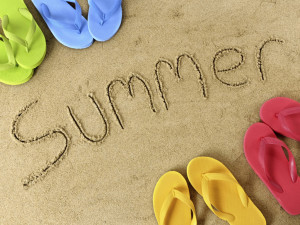[fusion_builder_container hundred_percent=”yes” overflow=”visible”][fusion_builder_row][fusion_builder_column type=”1_1″ background_position=”left top” background_color=”” border_size=”” border_color=”” border_style=”solid” spacing=”yes” background_image=”” background_repeat=”no-repeat” padding=”” margin_top=”0px” margin_bottom=”0px” class=”” id=”” animation_type=”” animation_speed=”0.3″ animation_direction=”left” hide_on_mobile=”no” center_content=”no” min_height=”none”]
I am often asked, “What can we do over the summer with our child?” We know if you quit practicing any skill you will have less success with it when starting again. This is true in sports and in academics. Baseball season has started. We did not play or practice during the school year and now my daughter is not as accurate in hitting as she was last summer. When school begins in August, your student will be less accurate in reading fluency, mathematical computation, and other academic skills if they do not practice over the summer.
According to Knowthefacts.org, student’s mathematical skills decrease up to two months during the summer break. Parents also report keeping their children engaged in learning over the summer is a struggle. There are many things you can do, however, to bring learning to your summer routine. The simplest thing, is to talk to your kids.
Being a teacher we don’t go to the movie theatre, we wait for Netflix. So this weekend we watched “The Boxtrolls“. My four-year-old, Monkey, fell in love. Today on our walk we talked. We found manhole covers the boxtrolls could have used to enter the world. We found trash they would have collected. We discussed what our names would be if we were a boxtroll. Monkey decided to be Batman and I decided to be Tiara. We also came up with names for other family members based on interests, hobbies, and personalities. This simple discussion allowed Monkey to practice making connections, using vocabulary and making inferences which are all necessary for reading. We are practicing skills he will need in kindergarten. But all we did was talk.
My seven-year-old, Princess, loves nature. Outside today we noticed a bird egg in the grass in the neighbor’s yard. We talked about the bird’s nest in we have in our tree. “What happened to the bird? How do they hatch? Where is the baby now?” were all questions Monkey had. So we talked. Princess told him how baby birds peck the shell to get out. We talked about life cycles and then found a video on hatching chicks. This provided a review of knowledge for the second grader and background knowledge for the preschooler. All we did was talk.
There is a tree that has died across the street. Someone has started cutting down the branches, but with all the rain we have been getting lately the job has been delayed. I commented to the kids how I was glad someone was cutting the tree down because the branches were brittle. This became a conversation about the word “brittle”. We found a smaller bush that was dying and had a brittle branch we could break. We found a healthy tree and bent the branch the same way to see it would not break. We went on a scavenger hunt for brittle branches. We talked about how older people can have brittle bones. The four-year old commented I needed to be careful, have to love kids! But the important thing is we talked. And they each have a new vocabulary word to add to their life.
Talking is not just about the language. I have been running for two-years now as a hobby. I have an app on my phone that measures distance traveled. On a walk to the store today, we turned on the app and discussed how far we had gone. This became a conversation about fractions. If we have walked 1/10th of a mile how much farther do we have to go to walk one mile? Princess knew about 1/4, 1/2, 1/6 and this connected information about 1/10th. Having a real life example of fractions will help her in third-grade next year when they transition to more abstract thinking. Talking about math is fun.
You have a million opportunities to talk to your children each day. And the beauty of talking is you can do it in any environment. In the car, while getting ready for bed, at breakfast, in the tub, at the pool, anywhere. Here are some ideas of things to talk about this summer (or all year-long) with your child:
- weather patterns (meteorology)
- animals in your neighborhood (life systems)
- measurements in cooking (fractions, weight)
- how much time it takes to do things (elapsed time)
- ask each other thought-provoking questions (vocabulary, inferring, higher level thinking)
- schedules (time)
- routes and directions (map skills)
- vacation plans (budgeting, money)
Parents are busy, but talk is free and a simple way to bring learning to your child and offset that summer loss. If you would like more summer activities and specific curriculum connections check out my archived article, “Summer Brain Drain: Activities to Keep Kids Learning“. For ideas about questioning kids check out my archived article, “Can I Answer That? Questioning for Parents“. If you slow down, put down the mobile devices, and talk with your children, you may learn as much as they do. Take a moment to notice what is around you and talk about it. It’s an easy way to pull learning into your busy lives.
“The Achievement Gap.” Summerlearning.org. National Summer Learning Association, n.d. Web. 17 May 2015.
[/fusion_builder_column][/fusion_builder_row][/fusion_builder_container]


